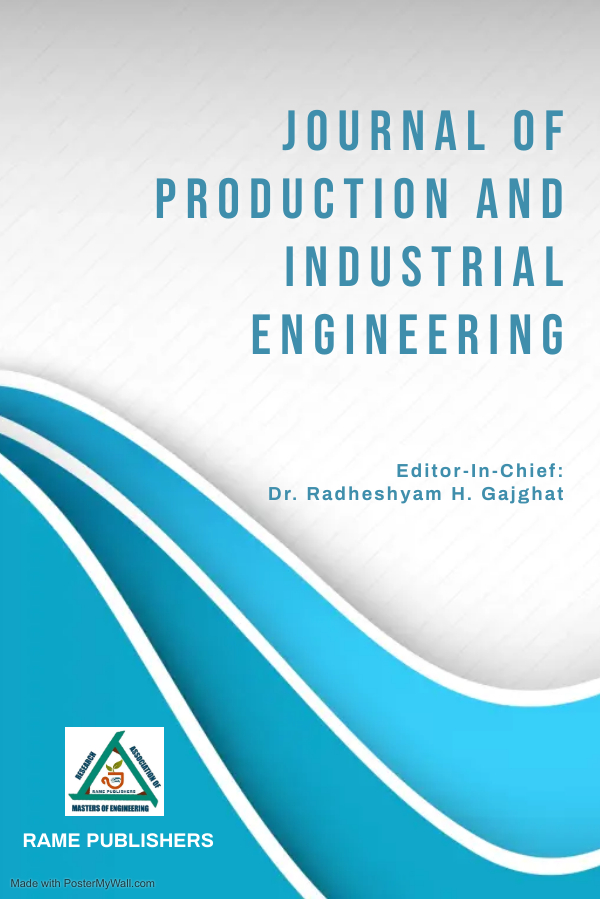Automated transmission of hand water pumps in remote towns of Nigeria: Attaining a sustainable development project management
Obed John Dagwa
Volume 2: Issue 1, January 2021, pp 13-18
Author's Information
Obed John Dagwa1
Corresponding Author
1University of Maiduguri, Borno State, Nigeria
johnobed74@gmail.com
Abstract:
This paper examines the rational that causes the huge failure of hand water pumps in remote towns from an automated transmission perspective, by looking at the already existing hand water pump automation transmission procedures in Nigeria where over 5,000 hand pumps were installed and about 70% are not working. This paper examined the lack of a well-structured and sustainable knowledge sharing practices within the main stakeholders, community users, and the government. It was analyzed that maintenance and operations, and the integration of a project management strategy were requisite criteria for the sustainability of the hand water pump in the remote towns’ water supply project. Community users have minimum involvement throughout the project phase; they have no knowledge on the technical approach of accessing the failed parts, the community does not have a trained expert to work on it and the government does not reserve spare parts of the equipment. The communication between the remote users and the suppliers is very poor which contributes which also leads to problems. Therefore, it is necessary to have a strategic focus on allocation of resources for automation transmission process. There is need for a model of maintenance which results from the objective of the study to provide for practical coordination that integrates both major stakeholders. The objective is to establish an institutional and sustainable support system through various partnerships.Index Terms:
Remote Towns, Automated Transmission, Hand Water Pump, Sustainable Development, Project Management.REFERENCES
-
Fairwater Foundation. “Fairwater cares about water and environment” ; [accessed 12.04.03], 2010.
Online - Baumann E. “Common RWSN context, Discussion Paper” St. Gallen, SKAT/RWSN; 2005.
- IRD. “Borehole mapping in the Lowveld of Swaziland.” IRD Swaziland: Unpublished; 2009.
- Phakhati M., “More boreholes, no water.” Inter Press Service; [accessed 12.04.02], 2009.
Online - Wang W, Lee A., “An evaluation framework for technology transfer of new equipment in high technology industry.” Technological Forecasting and Social Change, Volume 77, Issue 1, January 2010, Pages 135-150.
Crossref - United Nations Environmental Programme (UNEP). “Technology transfer: The seven ‘C’s for the successful transfer and uptake of environmentally sound technologies.” International Environmental Technology Centre UNEP, Osaka, Japan; 2003.
- Mabuza L, Brent AC, Mapako M. The transfer of energy technologies in a developing country context – Towards improved practice from past successes and failures. Proceedings of World Academy of Science, Engineering and Technology; 22: 237-241, 2007.
- Harvey P., Reed R., “Rural water supply in Africa: Building blocks for sustainability.” Loughborough University, UK: Water, Engineering, and Development Centre (WEDC); 2004.
- Haysom A., “A study of the factors affecting sustainability of rural water supplies in Tanzania.” Bedfordshire, UK: Cranfield University; 54, 2006.
- Heikkila T., Stellar D., Silva F., Filho F., Tress S., Lall U., “Designing sustainable and scalable rural water supply systems; Evidence and lessons from northeast Brazil.” Earth Institute, Columbia University ; [accessed 12.03.22], 2012.
Online - Hunter P.R., Macdonald A.M., Carter R.C., “Water supply and health.” PloS Med; 7(11): e1000361, 2010.
Crossref - Montgomery M.A., Bartram J., Elimelech M., “Increasing functional sustainability of water and sanitation supplies in rural sub-Saharan Africa.” Environmental Engineering Science; 26(5): 1017-1023, 2009.
Crossref - Mackintosh G. Colvin C., “Failure of rural schemes in South Africa to provide potable water.” Environmental Geology; 44: 101–105, 2003.
Crossref - Ciceri N.D. Garetti M. Terzi S., “Product lifecycle management approach for sustainability.” Proceedings of the 19th CIRP Conference – Competitive Design, Cranfield University; 30-31: 147, 2009.
Online - Labuschagne C. Brent A.C., “Sustainable Project Life Cycle Management: The need to integrate life cycles in the manufacturing sector.” International Journal of Project Management; 23 (2): 159-168, 2005.
Crossref - Harvey P., “Borehole sustainability in rural Africa: An analysis of routine field data.” 30th WEDC International Conference, Vientiane, Lao PDR; 339-346, 2004.
Online - Yin R.K., “Qualitative research from start to finish.” The Guilford Press New York London; 2011.
e-book
To view full paper, Download here
To View Full Paper
For authors
Author's guidelines Publication Ethics Publication Policies Artical Processing Charges Call for paper Frequently Asked Questions(FAQS) View All Volumes and IssuesPublishing with




